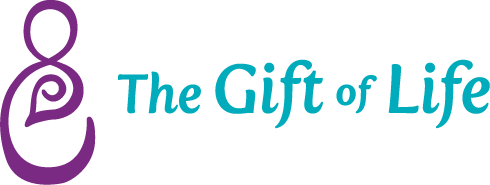April is National Child Abuse Prevention Month
National Child Abuse Prevention Month recognizes the importance of families and communities working together to prevent child abuse and neglect. Prevention services and supports developed by this collaboration can help to protect children and strengthen families. The home visiting and family coaching programs through the Gift of Life provide education, support, and connection to resources families need to reduce child abuse and neglect. Everyone benefits when we create safe, nurturing environments for children. To learn more about child abuse and neglect prevention in Alabama, contact the Children’s Trust Fund of Alabama at www.ctf.alabama.gov.
Becoming a parent isn’t easy! Too little sleep, financial troubles, and learning how to balance work and home with the demands of caring for an infant who’s needs can’t wait can be overwhelming − even the most loving parents. When families are already stressed and their social supports are unreliable, children are at higher risk of being neglected or abused.
The first three years of a child’s life are the most crucial to their emotional and physical development and all children deserve a safe, stable, nurturing home environment.
Home visiting programs like Gift of Life’s Parents As Teachers, Nurse-Family Partnership and Fathers in Action help because they educate parents on ways to cope with the stress of parenting.
Home visiting has shown positive results because services are delivered to families in an environment they are most comfortable in − their homes. Many studies have shown that home visiting can reduce child abuse and neglect and improve parents’ effectiveness.
Gift of Life’s home visitors are registered nurses, paraprofessionals and social workers who are trained to provide services that include:
Connecting families to community resource providers
Training parents to effectively nurture and discipline their children by redirecting negative behavior
Reduce risks of harm in the home; and
Educating parents about healthy practices during pregnancy, infant care, and family planning
Much of what we know about the effectiveness of home visiting programs comes from evaluations of The Nurse-Family Partnership (NFP), which is offered by Gift of Life. The program has been shown to reduce child maltreatment by nearly half (48%), and is considered the premier intervention program for preventing child maltreatment. Additionally, NFP was found to be particularly effective for at-risk families with fewer resources and greater stress.
If you need help coping with parental stress, help is available. For more information about preventing child abuse, call the Alabama Department of Child Abuse and Neglect Prevention at (334) 262-2951. If you suspect child abuse or neglect, call Montgomery County DHR (334) 293-3100 or The Montgomery County Sheriff’s Department (334) 832-4980 or the Montgomery Police Department (334) 241-2790.
What is emotional abuse?
Emotional abuse happens when a child is repeatedly made to feel worthless, unloved, alone or scared.
Also known as psychological or verbal abuse, it is the most common form of child abuse.
It can include constant rejection, hostility, teasing, bullying, yelling, criticism and exposure to family violence.
The impacts of emotional abuse are just as harmful as physical abuse.
WHERE TO GET MORE INFORMATION:
What is Verbal Abuse?: https://www.healthline.com/health/mental-health/what-is-verbal-abuse
7 Serious Effects of Verbal Abuse on Children: https://www.parentcircle.com/serious-effects-of-verbal-abuse-from-parents-on-children/article
What Does Emotional Abuse Look Like? : https://www.teach-through-love.com/types-of-emotional-abuse.html
Shaken Baby Syndrome
Shaken baby syndrome is a serious brain injury resulting from forcefully shaking an infant or toddler. It's also known as abusive head trauma, shaken impact syndrome, inflicted head injury or whiplash shaken infant syndrome.
Shaken baby syndrome destroys a child's brain cells and prevents his or her brain from getting enough oxygen. This form of child abuse can cause permanent brain damage or death.
Shaken baby syndrome is preventable. Help is available for parents who are at risk of harming a child. Parents also can educate other caregivers about the dangers of shaken baby syndrome.
Source: Mayo Clinic
Shaken Baby Syndrome Symptoms
Shaken baby syndrome symptoms and signs include:
Extreme fussiness or irritability
Difficulty staying awake
Breathing problems
Poor eating
Vomiting
Pale or bluish skin
Seizures
Paralysis
Coma
While sometimes there's bruising on the face, you may not see signs of physical injury to the child's outer body. Injuries that might not be immediately seen include bleeding in the brain and eyes, spinal cord damage, and fractures of the ribs, skull, legs and other bones. Many children with shaken baby syndrome show signs and symptoms of prior child abuse.
In mild cases of shaken baby syndrome, a child may appear normal after being shaken, but over time they may develop health or behavioral problems.
When to see a doctor
Seek immediate help if you suspect your child has been injured by violent shaking. Call 911 or emergency medical help, or take your child to the nearest emergency room. Getting medical care right away may save your child's life or prevent serious health problems. Health care professionals are legally required to report all suspected cases of child abuse to state authorities.
Other Resources
Alabama Department of Child Abuse and Neglect Prevention
Children’s Trust Fund of Alabama – For information, resources and support on child abuse prevention: (334) 262-2951 • www.ctf.alabama.gov
Alabama Department of Human Resources – To report suspected incidents of child abuse and neglect: (334) 242-1310 • www.dhr.alabama.gov
Childhelp USA – A 24-hour hotline that offers crisis intervention, information & referrals: (800) 4-A-CHILD • www.childhelp.org
Grandparent Information Center – Support and resources for grandparents raising grandchildren: (800) 424-3410 • www.aarp.org
Prevent Child Abuse America – A resource for tips, referrals, and parenting materials: (800) CHILDREN • www.preventchildabuse.org
RESOURCES FOR PROFESSIONALS




